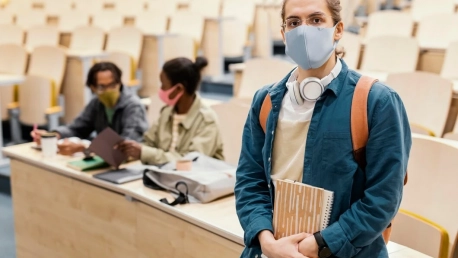The Senate Appropriations Subcommittee hearing with U.S. Education Secretary Miguel Cardona recently unfolded, focusing on the significant difficulties plaguing students, families, and educational institutions. At the heart of the deliberations were the setbacks surrounding the Free Application for Federal Student Aid (FAFSA) and concerns over safety during pro-Palestine protests on college campuses. While the proposed fiscal year 2025 education budget was on the table, these pressing issues emerged as top priorities, necessitating immediate attention and resolution.
The FAFSA Fiasco: Addressing Technical Glitches and Delays
Recognizing the Significance of FAFSA
In front of the subcommittee, Secretary Cardona underscored the invaluable role of FAFSA as a gateway to higher education through financial assistance. Aware of the setbacks that have occurred, his commitment to rectifying the problems for the 2025-2026 FAFSA submissions was unequivocal. The immense pressures on students—and the broader education system—due to the delayed launch and enduring technical problems of the FAFSA platform have steered college accessibility into troubled waters.The disruption has not only caused frustration and confusion but has alarmingly derailed students from their higher education paths. The anticipated fixes to the application process were confirmed to be at the forefront of the Department’s agenda, highlighting an intensive collaboration with various institutions to streamline this crucial financial cog and lift the veil of uncertainty that currently shrouds the academic future of many.
Impact on College Admissions and Planning
Educational bodies have been thrust into the eye of the storm as falling rates of FAFSA completion echo nationwide, inciting significant changes to the landscape of college admissions. With Secretary Cardona at the helm, there was a tacit acknowledgment of the ripple effects, which have rippled out to influence such fundamental aspects as college decision deadlines. Having fewer students complete their FAFSA forms translates into a stark reduction of opportunities for them to pursue further education, underlining the urgent need to overhaul the existing processes. Institutions have been adapting, extending their decision-making timelines to accommodate this shortfall, nonetheless symbolizing a substantial impact on both admissions procedures and financial planning.
Campus Climate: Safety and Free Speech at Stake
Condemning Antisemitism Amid Protests
Secretary Cardona robustly denounced the instances of hate and antisemitism that have been reported as part of pro-Palestine demonstrations within collegiate settings. The subcommittee was informed of active investigations addressing these concerns under Title VI of the Civil Rights Act, reflecting the Department of Education’s vigilant stance on upholding the sanctity of inclusivity and safety on campus.The delicate balance between facilitating free expression and maintaining a climate free from hostilities is a challenge that the Department of Education does not take lightly. Secretary Cardona’s briefing to the subcommittee underscored that while educational institutions are places for diverse opinions and robust debate, they must also protect their students against any form of discrimination that can taint the educational experience or undermine students’ sense of security.
Balancing Expression and Educational Safety
In light of ongoing concerns, the reiterated commitment from the Department of Education has been to foster environments that are as secure as they are intellectually free. College and university campuses are unique arenas for the exchange of ideas and viewpoints; however, the subcommittee was reminded that safety must never be compromised. The dedication towards resolving the tension and providing guidance for institutions to navigate these complex issues was apparent throughout the hearing.Secretary Cardona and the subcommittee members agreed that it is essential to proceed with careful vigilance. Educational policies and protections are set to evolve and adapt in order to assuage fears and to assert the unwavering dedication to an education that is unmarred by hatred or discrimination. Such collaborative efforts are the cornerstone of ensuring an educational landscape that can truly be deemed safe and equitable for all students.
Addressing Broader Education Challenges in FY 2025
Combating Absenteeism and Mental Health Crises
In an effort to confront growing concerns of chronic absenteeism and the surging mental health crisis among students, Secretary Cardona delineated proposals embedded in the FY 2025 budget. The budget incorporates an $8 billion grant program aimed at reigniting consistent academic attendance and a substantial allocation for mental health programs within K-12 education, which includes funds from the Bipartisan Safer Communities Act.The granular details depicted a thoughtful approach encompassing the varied facets of the modern student experience. By pooling resources and emphasizing targeted aid, the Department of Education aspires to address these systemic challenges head-on, reinforcing the inner resilience of the educational framework and the well-being of students across the nation.
Striving for a Holistic Academic Ecosystem
During the recent Senate Appropriations Subcommittee hearing with Secretary Miguel Cardona, key issues facing the U.S. education system took center stage. The discussion primarily focused on the challenges with the Free Application for Federal Student Aid (FAFSA) and concerns about student safety amid pro-Palestine campus protests. Although the meeting was initially convened to scrutinize the proposed 2025 education budget, these urgent problems were spotlighted, signaling a need for prompt solutions. Senators and Cardona exchanged views on how to best tackle the intricacies of financial aid applications and to ensure universities remain safe environments for all students, regardless of the ongoing geopolitical debates influencing campus climates. These topics underlined the intricate balance of administrative oversight and student welfare within the educational landscape.









